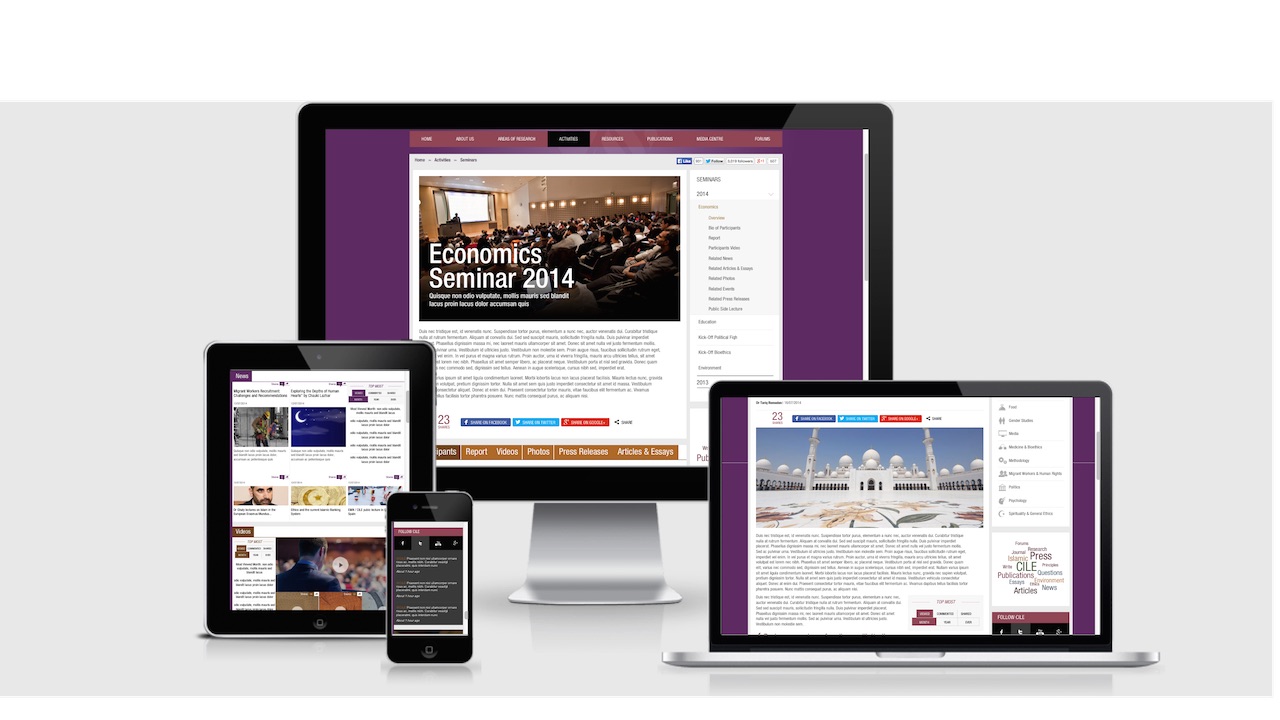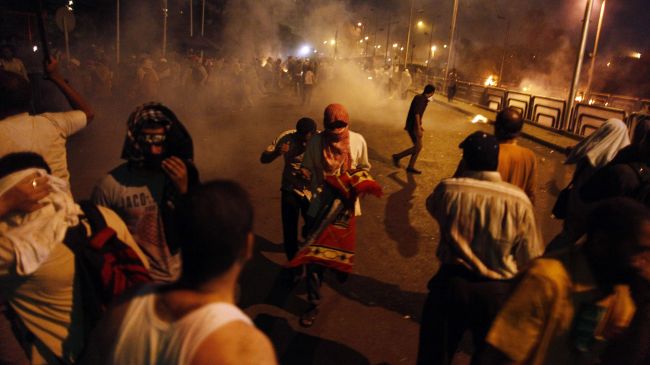The presidential election in France throws a cold, clear light not only French political reality, but on trends that are working their way through Europe, the United States, Canada and Australia. An identity crisis of unprecedented scope afflicts the West, a crisis that has called its status, its dominance, its values and even its sense of itself into question—and poisoned social debate in the bargain.
France is adrift. For years, incumbent president Nicolas Sarkozy has flirted with populist themes ranging from immigration and security to secularism and Islam (headscarves, niqab, halal meat, prayers in the street, etc.) to pander to a portion of his electoral base, and to the far right of the political spectrum. A master manipulator, he exploits the emotions of fear, mistrust and rejection, and flirts with the demons of racism. The Socialist Party, his principal adversary, has used the same kind of language, and seems incapable of articulating a political vision that responds concretely and credibly to the needs of French citizens on such vital questions as employment, housing, and education. The socialists, and the opposition parties in general, seem content to mouth empty criticisms, or to use populist appeals in an attempt to outdo Sarkozy. Rarely have they been able to focus debate on genuine issues. In recent weeks the presidential campaign has degenerated even further, piling media-fueled controversies upon one another, seemingly searching for ways to stoke phantasms and fears. For months it has been clear that the only victor could be the Front National and its brand of populism founded on the denigration of the Other and the simple-mindedness of its solutions to social problems, its style of depicting its supporters as victims, and blaming the Other for their problems.
The campaign now raging in the second round, pitting Sarkozy against the socialist candidate François Hollande, reveals with every passing day the phenomenal upsurge of the Front National. Not only did the right-wing party’s candidate win more than 17% of the votes in the first round, making it the country’s third political force, but its ideas are omnipresent, and color the political calculations of both major parties. Nicolas Sarkozy, fighting for political survival, has swerved even farther to the right, while François Hollande, to block any massive shift at the ballot box, attempts to reassure a section of the Front National’s electorate that their voices have been heard. The Front National is not in the run-off, but its ideas have emerged as the key to victory or defeat. Promises are flying thick and fast; mudslinging, half-truths and outright lies abound. France is in crisis. Little is heard of the country’s moribund economy, of its social policies or of its international role; much is said about closing borders, arming and reinforcing the police, about blocking the Islamization of society. A sorry spectacle indeed.
While in an Oslo courtroom Anders Behring Breivik depicts himself as a legitimate resister, as a victim of all those he claims have destroyed the country’s Norwegian and European identity, across the continent populist movements are gaining strength as traditional political parties rush to legitimize their most pernicious ideas. Forms of racism compete; Blacks, Arabs, Jews and Muslims are stigmatized according to historical and political circumstances. Politicians in every European country, powerless in the face of the diktats of the markets, the rating agencies, the banks and the all-powerful multinationals, shift the focus of debate, blaming cultures, religions, immigration and insecurity as the cause of social ills. Europe may well boast the most splendid values, those of justice and human rights (which are indeed noble and universal), but its political practices, the enforcement of laws (and their frequent transgression), rampant racism and the exploitation of foreigners and immigrants stand, with every passing day, in more flagrant contradiction to those ideals. From one end of Europe to the other, in the ultra-liberal democracy of the Netherlands, as in France, Switzerland, Spain, Norway, Denmark, Germany, and Belgium—from North to South and West to East—the picture is the same: populism rides roughshod, fears are deepening, mistrust is spreading, and racism is increasingly exemplified by the demeaning treatment inflicted upon criminalized migrants, nomads, foreigners: anyone, in short, who is “not like us.”
Populism is a cancer devouring Europe and, on the eve of France’s presidential election, it is spreading. Initially, it may have been a strictly European phenomenon, which could not possibly infect countries founded on immigration, such as Australia, Canada or the United States. What an illusion! In Stephen Harper’s Canada, or the Australia of Julia Gilliard, political strategies and alliances impose the rabble-rousing rhetoric that stokes the same fears, the same connections. Questions of identity, of cultural homogeneity, of fear, of recent immigration and its limitations, and its dangers, and of multiculturalism have become its principal vectors. On the eve of the American elections, Neo-con and Tea Party strategists wave the same red flags: African Americans, foreigners, and today, Latinos and Muslims, are singled out for attack by parties and movements that are incapable of formulating coherent policies but have successfully identified enemies (people who are different, threatening, with the propensity to multiply and legally establish roots). The same symptoms reveal the same diseases.
How easy it is to criticize one’s neighbor. Today, many in Europe and beyond, mock France’s disorder and that of its president. Who could blame them? The spectacle is in many ways pathetic. But the pathology is not particularly French, it is that of the West. Western domination is being challenged, endemic crises are sapping its foundations; populist parties are spreading, rallying citizens around issues of identity and nationality against the direction of History, in flagrant denial of new national and international realities. The problem is pervasive, the crisis multifaceted. It is time to confront the evils that have undermined the conscience of the West instead of hiding behind fulsome words about Enlightenment values. In the name of our security and well-being we have been persuaded to accept the imprisonment of the innocent, to accept torture, collateral damage, and structural discrimination; the racist and xenophobic slogans shouted by the man on the street, and mouthed by intellectuals and politicians alike, no longer horrify us. To save the future by pretending that it is legitimate to destroy individual consciences is hardly a promise for the future. On the contrary, it is nothing but a dead-end, a form of no-future. Absent an upsurge of awareness and courage, absent the readiness to confront the populism that is becoming the new norm, no need to be a clairvoyant to conclude that we are witnessing the self-destruction of a civilization. But between the arrogance of the populists and the resistant humility of a lucid conscience, the choice is ours to make.
source : http://bit.ly/IlI2im









